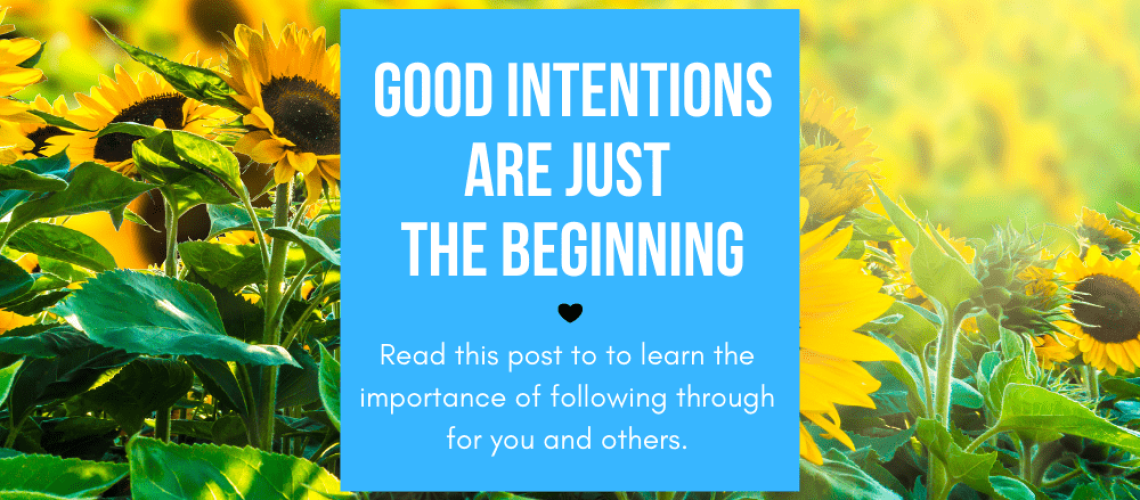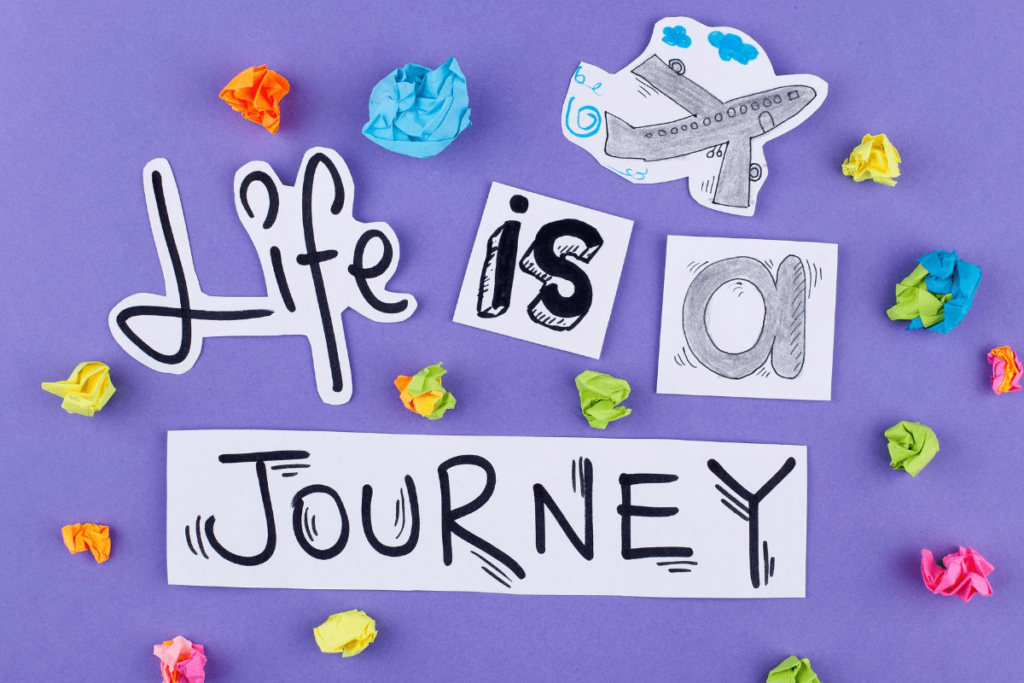If we dream all the time our intentions stay just that-dreams. Wouldn’t it be nice if they became a reality?
In coaching with me, we do what I call “Vision Planning,” where you tell me what your intentions are in coaching. Our goal is to accomplish the goals in our vision planning by a certain date you set so we turn our intentions into a reality.
No goal is too big or small. I’ve worked with people who wanted to increase business sales, write books for people who just want to practice weekly self-care. The good intention is just the beginning.
To make it happen, we need to take the steps of real change that close that gap between what we value and our behavior.
Example:
We can all relate to an apology, so I’ll use that as an example. Hey, we’re human and make mistakes!
When we have the good intention of fixing something we apologize for we say, “I’m sorry,” but that’s not enough. You need to understand what happened, how you are going to change yourself, and how other people perceive you. The apology has 3 parts…
- Agreement-This is more than the other person simply saying, “It’s ok.” They have to understand how they feel about what just happened and trust your apology is filled with good intentions.
- Acceptance-Then they need to accept the apology with the hope you understand why they are upset and that you will work on changing the future so this event doesn’t happen again.
- Follow up-This is the most important part. After an apology, you need to make sure whatever happened doesn’t again to preserve that relationship or not initiate the same mistake again
Pitfalls:
What are the pitfalls to good intentions whether they involve our dreams, goals, or relationships?
In coaching, I see 4 pitfalls to good intentions over and over again.
They are:
- Time-our top enemy! We want to work out, eat better, do the thing, call the friend and then there’s no time! Put that intention on your calendar right away so you can ensure something happens. If a friend asks me to do dinner sometime, I let them know my availability right away and put it on the calendar with an alarm to confirm with them as we get closer. I hold myself accountable immediately or I know it will go by the wayside.
- Effort-Effort has 3 parts and is the most important part of following up on a good intention. Effort, Maintenance, and Consistency. It takes actual effort to make things happen. If you want to buy that designer bag or the latest iPhone, you’ll have to take extra shifts at work, put things on eBay, etc. Along with effort comes maintenance…think if you want to gain some muscle, you’ll have to make the effort to start working out and then maintain a workout schedule. Lastly, you’ll need to be consistent with that workout schedule, maybe going to the gym 3x a week. Do you see how this ties together from the intention?
- Distractions-A perfect example of this is our cell phones. We get a notification on social media. We get an alert someone made a move in our online game. A pop-up comes up that our favorite store is having a 50% off sale! Distractions are of plenty these days and literally kill our good intentions. The antithesis of a distraction is focus! Remember what your focus is on- that good intention and stick to it!
- Support-The last pitfall here is lack of support. If it’s an apology, for example, you may ask the other person involved to hold you accountable next time so whatever happened doesn’t happen again. Support is important! Let someone else know your intention so they can help motivate you and hold you accountable!
Follow-through:
In conclusion, take that good intention and follow-through. Measure your progress. Understand what your pitfalls are and know them inside and out. Remind others you are making an effort to make that intention a reality and run with it.
Dreams are just dreams until you take action!
I believe in you. You can take that good intention and create something beautiful out of it because you are you and you are worth it.


